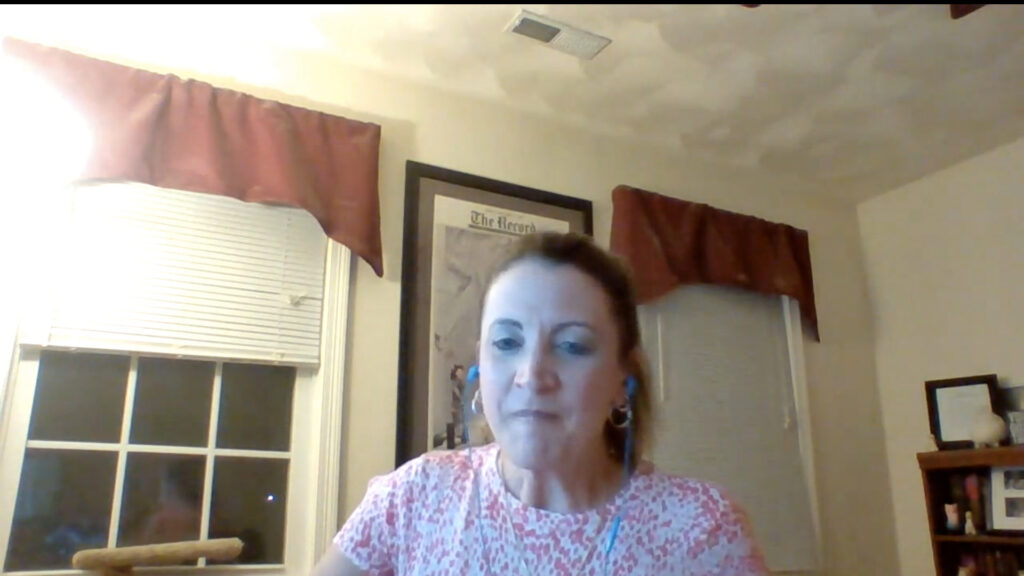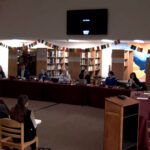
Reading, MA — Two conversations that look toward the future dominated the School Committee on Thursday, September 24. The first conversation was the beginning of a book discussion and second, a look at the next district improvement plan.
Superintendent John Doherty led the committee in a directed discussion of the book “Everyday Anti-Racism: Getting Real About Race in School” edited by Mica Pollock, the same book which has been read by the Central Office staff and other district administrators. Based on the first pages of the book, Doherty asked the committee to respond to four questions: 1. What assumptions does the author make? 2. What do you agree with in what you read? 3. What did the author say that you argue with? 4. What do you aspire to?

Reflections on the assumptions that the author expressed were wide. Various members shared assumptions about student and teacher experiences, buried emotions, and openness to the topic of racism. Members also found a lot to agree with but focused on the need for these discussions to occur and that openness to change is important.
“Each of us must let go of the racial understanding we have in order to move forward.” Member John Parks said. “Being willing to self-examine can go a long way in these conversations.” Member Erin Gaffen continued.
Members had difficulty with the concept of “arguing” with the author, but member Shawn Brandt stated that he did not like the idea that a classroom that is conflicted is necessarily disorderly, relating from his experience that some of his greatest learning came in times of classroom disagreement.
Member Thomas Wise disagreed with the notion that everything in a conversation can be prepared for, “You need to be flexible and respond.” Wise suggested. Chair Chuck Robinson did not care for the concept that conversations about race usually do not provide closure or resolution. Parks disagreed, “There may never be resolution to these conversations, they are ongoing.”
The message that several committee members aspire to is the idea of staying engaged in the conversation, with Robinson committing to continue the book discussion throughout the year. “It is critical that we don’t do this, then put the book on the shelf and move on to other things.” Robinson shared. Wise added a practical aspiration that the committee can never accept that students can only perform at a certain level because of racial background. “We don’t accept that as an answer.” He declared.
The committee moved from this discussion to one regarding the next District Improvement Plan. Doherty emphasized that this is only the beginning of the process of developing the plan. According to Doherty, the discussion was to “start to identify areas” that should be included in the new plan.
Areas to be continued from the prior plan mentioned by members included curriculum mapping guides, continuing the five-year reviews of special education programs, and adjusting learning goals to the reality of the situation. “We need to hit the reset button for this year.” Member Carla Nazzaro commented. Wise also suggested a tangible plan for recruiting a more diverse faculty and staff in the district. This need was affirmed by several other members.
Wise also highlighted the need to continually refresh the curriculum, noting that his daughter’s Algebra II textbook was published in 1976. Both Parks and Wise expressed a desire for a plan to aid teachers in their career growth. Parks noted that many of the best administrators are often hired from within.
Now that school has been open for almost two weeks, Doherty updated the committee, stating that the reopening has been “positive.” He shared that there are still 27 para-educator and tutor positions open across the district as well as four teacher openings. There are also nine potential additional teacher openings when the district switches to a hybrid model.
Currently, high-needs students, preschool students, and kindergarteners are all learning in-person. Doherty expects to begin phasing-in the hybrid model with grades one, two, six, seven, and eight during the week of October 13, with the remainder of students, phased into the hybrid model by the end of October. October 9 will be a full-day in-service for teachers to train for the hybrid model.
Doherty also said that the modular classrooms arrived at Birch Meadow Elementary School on September 11 and will be ready on October 15. “They are a nicer quality modular than the last round we got.” Director of Facilities Joe Huggins shared.
Chief Financial Officer Gail Dowd reported that the district returned just over $471,000 to the town’s free cash reserves at the end of the Fiscal Year 2020, most of which came from an additional $300,000 that was allocated by the town for special education to cover uncertainties in transportation and out of district costs, which was not needed.

Dowd also reported that playgrounds at the schools have been opened under the Board of Health guidance. “It was interesting that [students] could play [on the equipment] before school hours, [students] could play [on the equipment] after school hours, but could not during school hours,” Dowd stated. Stations for hand sanitizing have been added to all playgrounds to increase safety which students use prior to and after play on the playground equipment.
The School Committee adjourned at 9:05 pm.

